Shaheedi Ajeeb’s only ambition in life was to become a journalist despite the obstacles it meant she faced in what was a deeply patriarchal society.
Petite and softly spoken Ajeeb didn’t just overcome difficulties to achieve her dream career. She put up her hand to be a war correspondent. But the young Ajeeb could never have imagined how dangerous and how vital her chosen career would be.
Embedded with soldiers at the battlefront, Ajeeb directed her reports to an audience that included hundreds of thousands of Syrians whose lives had been shattered by the war: many had been direct witnesses and/or victims of the conflict. For the country to stay united, journalists such as Ajeeb had to earn the trust of their audiences. They would see through falsehoods and sense hidden agendas.
Women such as Ajeeb are transforming their society. Within their country, they demonstrate that patriarchy is outworn. To those of us outside their country, they reveal a largely hidden Syria.
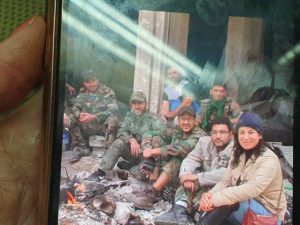
TRANSCRIPT OF THE INTERVIEW
This interview with Shaheedi Ajeeb, a journalist from SANA (Syrian Arab News Agency), was recorded for ‘Beloved Syria’ in September 2019.
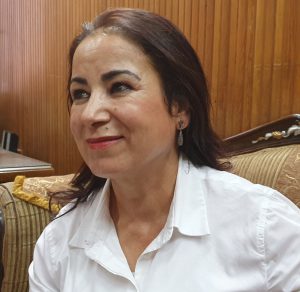
“Journalism was an ambition of mine, so I worked towards this dream, and defended it. Everyone was against this pursuit of mine but it was my persistence that led me into this field of work. Personally, I have always been passionate about working in journalism and indeed it has been an all-consuming pursuit.
The turning-point in my work was the transition from being a journalist to a war correspondent during the initial stage of the war on Syria.
I was with the men of the Syrian Arab Army, who were situated at the battlefront, and I felt their great enthusiasm and I shared their energy for two reasons: firstly, the love I have for my work as a journalist, and secondly, the duty towards my nation during this difficult period that has been confronting us.
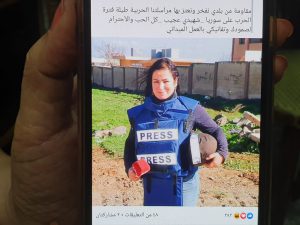
I didn’t doubt that throughout my presence on the battlefront that I was reporting what was actually happening and what the terrorists were doing – from destructions to killings and kidnappings. I was also reporting exactly what the soldiers were doing, such as carrying out their duties and defending their country.
I was highly motivated to work in this field, considering its vital Importance. Initially there were, maybe, criticisms from others about a woman going to battlefronts and exposing herself to danger.
However, this perception changed for most people and instead, respect and appreciation was shown to me for doing this kind of dangerous work. Maybe we could say that despite the bitter outcomes of the war, there were moments where I felt proud of all the work I did for my country.
When we entered a liberated and recovered area that the Syrian Arab Army took back after they achieved victory over the terrorists, we thought to ourselves, ‘How did all these people living under siege in terrorist occupied regions for many years, come and welcome me with such love and respect, and even hug me?’ This was the greatest proof that I had done my duty correctly and that they trusted what I had reported in the news.
To conclude, this war was a difficult experience. We didn’t choose this war to happen, but if there is anything good to take from it, it is the people’s connection to their land and their being able to defend the country against the worst things.
We have been defending civilisation against a brutal aggression. In other words, there have been battles for peace and security against the danger of terrorism.
I am not exaggerating when I say these terrorists were not just against Syria, but also against all of humanity because one who destroys homes and forces people to live as if in prehistoric times with backward ways certainly presents a great danger for any human being, in any place around the world.” –Shaheedi Ajeeb
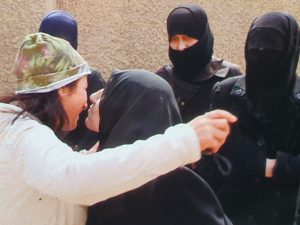

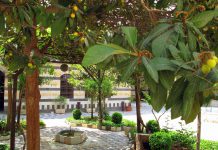
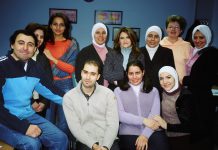
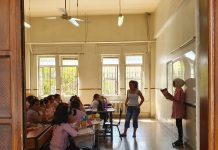
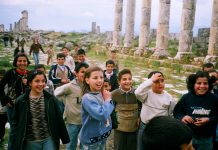

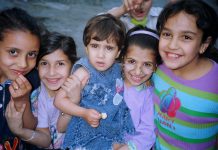


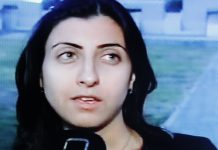
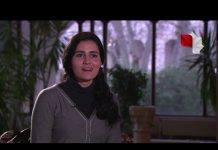
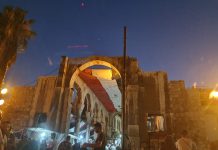

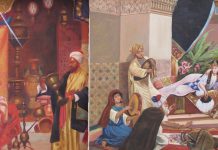
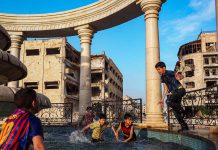
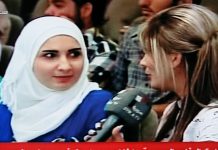
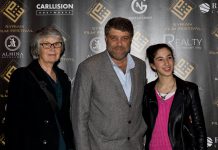







[…] on a journalist’s visa determined to interview a range of Syrian women. My interviewees included a war correspondent, a Scout leader, a member of parliament, a film maker, a teacher, high school students, and (very […]